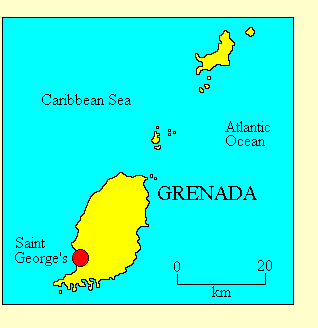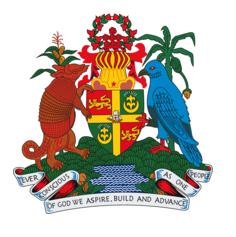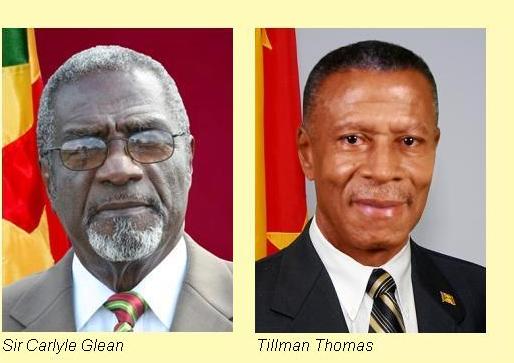

GRENADA
• Official name: Grenada
• Location: Caribbean
• International organisations: African, Caribbean and Pacific Group of States, Commonwealth of Nations,
Non-Aligned Movement, Organisation of American States, United Nations, World Trade Organisation
• Borders: None
• Coastline: Atlantic Ocean, Caribbean Sea
• Land area: 344 Km2
• Population: 110,000
• Annual GDP (PPP) per capita: US$10,800 (2009 CIA estimate). World ranking: 79
• Ethnicity: More than 80% of the population are of African descent. The remainder are of mixed African,
European and Indian descent.
• Languages: English is the official language and is generally understood. Most of the
population speak a local English-French creole.
• Religion: Nearly all the population are Christian, the majority Catholic.
• Form of government: Constitutional monarchy and parliamentary democracy. Grenada is
divided into six parishes.
• Capital: Saint George's
• Constitution: The
Constitution of Grenada came into effect on 7 February 1974. It was suspended in 1979 but reinstated in 1984.
• Head of state: Queen Elizabeth II, Queen of Grenada. The Queen came to the British
throne on 6 February 1952, and has held the title Queen of Grenada since 7 February 1974.
The Queen's functions in Grenada are exercised by a Governor-General, appointed by the
Queen on the advice of the Prime Minister. The current Governor-General,
Sir Carlyle Glean, took office on 27 Nov 2008.
• Head of government: The Prime Minister, appointed by the Governor-General. The Prime Minister is the
leader of the largest party in the legislature and is accountable to it.
• Legislature: Grenada has a bicameral Parliament. The House of
Assembly has 15 members, elected for five-year terms from single-member constituencies.
The Senate has 13 members, ten appointed by the Prime Minister and three appointed by the Leader of the Opposition. The
Parliament has no website.
• Electoral authority: The Parliamentary
Elections Office conducts national elections.
• Freedom House 2009 rating: Political Rights 1, Civil Liberties 2

Political history
Grenada was discovered by Christopher Columbus in 1498, but was never settled by the Spanish. A French settlement was
established in 1650, and the French introduced African slaves to work on the sugar plantations. The island was captured
by the British in 1762 and finally ceded in 1783, becoming a British crown colony. In 1833, Grenada became part of the
British Windward Islands. In 1958 Grenada joined the Federation of the West Indies, which collapsed in 1962. In 1967
Grenada was granted internal self-government, and full independence followed in February 1974.
Grenada's first Prime Minister, Sir Eric Gairy, proved to be eccentric and autocratic, and in March 1979 he was
deposed in a bloodless coup by the left-wing New Jewel Movement (NJM), led by Maurice Bishop. The constitution was suspended
and a left-wing regime supported by Cuba was established. In October 1983 an internal struggle within the NJM led to
Bishop's murder and power passed to an even more radical group led by Bernard Coard. Disorders broke out, and the US
organised an intervention led by US troops and supported by other Caribbean governments.
After a period of interim government elections were held in December 1984 and constitutional government
restored. A new conservative party, the New National Party (NNP) took office and
remained in power until 1989, when it was defeated by the National Democratic Congress.
The NNP returned to power in 1995 and remained in office under Keith Mitchell until 2008. At the 2008 elections the NDC had a big victory and
Tillman Thomas became Prime Minister.
Freedom House's 2009
report on Grenada
says: "Grenada is an electoral democracy. The 2008 parliamentary elections were considered generally free and fair, although there were
allegations of voter-list manipulation. Corruption remains a contentious political issue in Grenada, and the country compares
unfavorably with several of its neighbors. Grenada was ranked 79 out of 180 countries surveyed in Transparency International's
2007 Corruption Perceptions Index. It was not ranked in the 2008 index due to lack of data... The right to free expression is
generally respected... Constitutional guarantees regarding freedoms of assembly and association are respected...
The authority of Grenada’s independent and prestigious judiciary is generally respected by the Royal Grenada Police Force."
Updated January 2010
|

